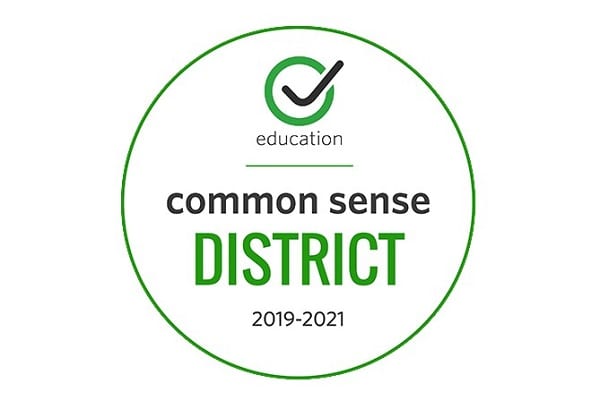TOWSON, MD—Common Sense, a national nonprofit dedicated to helping children and families thrive in a world of media and technology, has recognized Baltimore County Public Schools as a 2019-2021 Common Sense District. BCPS has maintained this designation since 2016.
“BCPS takes a whole-community approach to preparing all students to think critically and use technology responsibly to learn, create, and participate,” said BCPS Superintendent Dr. Darryl L. Williams. “At the same time, we prepare them to avoid online perils, such as plagiarism, loss of privacy, and cyberbullying. With the right support, students can take ownership of their digital lives, engage with real issues, and change their communities for the better. This recognition acknowledges our school system’s commitment to creating a culture of digital citizenship. We are one of fewer than 150 districts in the country to earn this honor.”
“We applaud the faculty and staff of Baltimore County Public Schools for embracing digital citizenship as an important part of their students’ education,” said Liz Kline, vice president of education programs at Common Sense Education. “Baltimore County Public Schools deserves high praise for giving its students the foundational skills they need to compete and succeed in the 21st-century workplace and participate ethically in society at large.”
“Our commitment and continued recognition is due to the daily work in our schools in regard to preparing students to be safe, smart, and responsible in their digital environments,” said Fran Glick, BCPS coordinator of Library Media Programs and Digital Resources. “It is an honor to be recognized by Common Sense, a known leader in this field.”
BCPS uses Common Sense Education’s innovative and research-based digital citizenship resources, which were created in collaboration with researchers from Project Zero, led by Howard Gardner at the Harvard Graduate School of Education. The resources are grounded in the real issues students and teachers face, and teach students, educators, and parents tangible skills related to internet safety, protecting online reputations and personal privacy, media balance, managing online relationships, and media literacy. The free K–12 curriculum is used in classrooms across all 50 states, in more than 65,000 schools by more than 750,000 educators.


